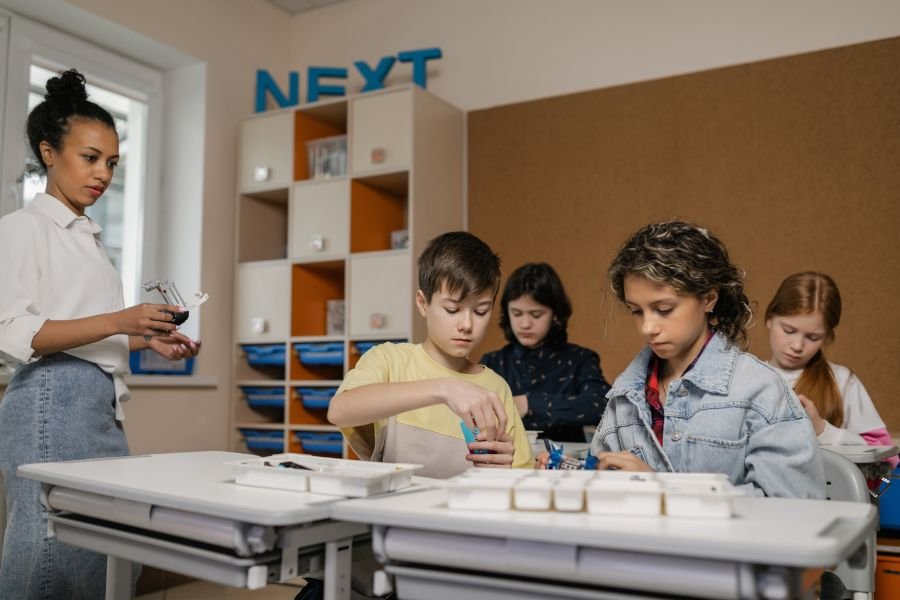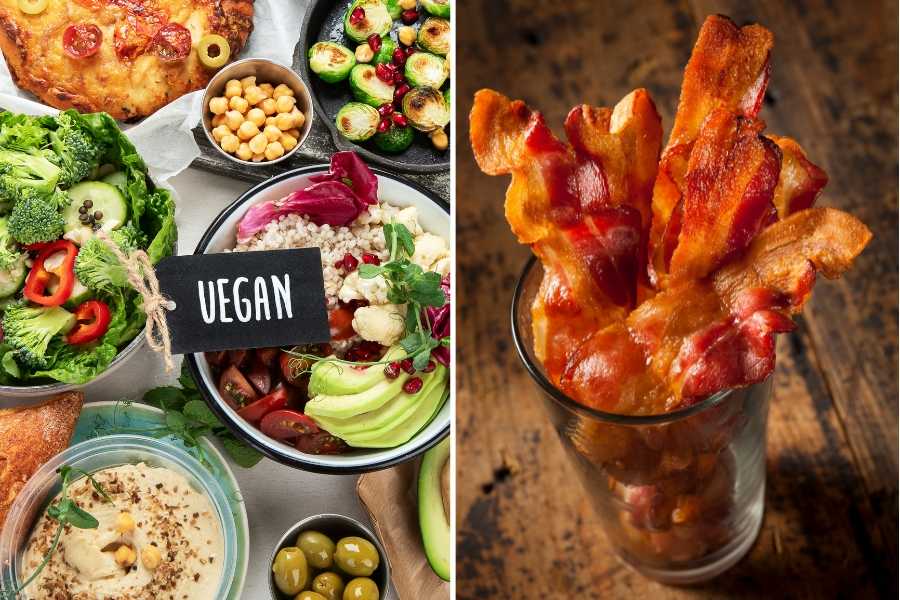Over on Reddit, Europeans asked Americans different questions about American life, covering every topic from tipping culture to favorite landmarks to football fascination (not to be confused with soccer, of course).
It’s clear from the candid conversation that there are both many wonderful, awe-inspiring things Americans take for granted, and things that, well…aren’t exactly superior, despite USA pride.
Still, it’s interesting to see what mundane aspects of living in the US, both good and bad, might be a source of fascination to someone living outside the country. It can, after all, be easy to forget that the world contains a vast number of lifestyles, and one of the biggest benefits of existing in the modern age is being able to explore those different ways of life. Hopefully physically, but sometimes a good old fashioned internet thread does a pretty good job at giving us insight.
Check out what Europeans wanted to know about America below:
1. “Americans, do you think that political extremism is rising as drastically as it’s portrayed in media?” –Jo-Gama
“Unfortunately, yes. The media likely makes it out to be worse than it is, but by doing so, they continue to push people in that direction.” –Fat_Feline
“I think the media makes it sound worse than it is. We’re mostly aware it’s a problem, but we have so many other things to worry about. Rising prices of food, housing and gas affect us way more on a daily basis than racial/political issues. That being said, I also think that the fact we have protests and people speaking out means there’s a large part of this country that is actively working towards change. It’ll just take a while because many current politicians have been alive since polio was a legitimate concern to Americans.” –carminie

“I’ve seen it in person…Discourse is growing further and further from center and no one wants to talk about it anymore. My parents would often hold parties where their friends would talk politics and sure, maybe get a little heated – now politics is a no-go zone because no one can get along. Conversations evolve into arguments and fights and it’s just not worth it. And it’s leading a lot of people with differing views to refuse to mingle together, which makes things worse. The media certainly amplifies extreme voices, but the day-to-day reality is that those voices are all around us.” uarterRobot
2. “Do you acknowledge your heritage from European countries?” Mitchelljvb
“Yes, Americans love learning about their ancestry, we have DNA test and tv shows where people will learn about their families past. Most people with European ancestry are able to track their family to the original country they came from.” Nimzay98
3.” How can y’all call football (soccer) a boring sport but like American football, which has like a billion interruptions, and baseball, which has close to zero action?” –TheCatInTheHatThings
“I think people dislike football (soccer) because of the lack of scoring, a team can make 10 attempts at goal and end up not scoring but the other team can make 1 attempt and make it in. And that one goal may be the only goal for the whole game. American football, on the other hand, with its yard system, means that any progress by either team ultimately counts towards the end result. There is also more scoring.As an American, I do not understand why anybody watches baseball. That still eludes me.” –rand0m-nerd
“Which city in the US has the best public transit system in your opinion?” RoboGen123
“New York City, hands down.” –kmobnyc
“Chicago over NYC imo.” –Uhhsoka

4. “Do you ever get tired of how big your country is? Like getting from state to state could take much time as getting to France from England.” –pasta_and_lobster
“Not at all. It’s actually one of the things I love most about the states. If you’re into outdoorsy activities, you’ll never run out of new places to explore.It’s also nice to be able to travel so far without the need for a passport.” –anonandlit333
“Yep. Only problem is gas money lol.” –SouthernMuadib
5.” Do you believe the US educational system needs a reform?” –lotlotov
“Which US education system? It has like 3000 different education systems.” –Due_Satisfaction2167
“It’s a very real and scary problem that our government is choosing to ignore.” –wildflowersandroses
“Yes. It’s inequitable. Our taxes fund education, so rich towns have great school systems while those with lesser means get a lesser educational experience.” –Username_goes_here_0

6. “How tf does the imperial system work?” –Small_Cock_Jonny
“It’s mostly based around units that are intuitive and useful for daily tasks rather than scientifically rigorous. An inch is about the…the length of your top thumb joint…A foot is 12 inches because 12 is easily divisible by a lot of things, you can break it into quarters, halves, thirds, sixths or twelfths…The temperature scale goes from 0 degrees, which is about as cold as it naturally gets most places and also corresponds to the coldest temperature that saltwater can be before freezing, up to 100 degrees which is about as hot as it gets most places and also is close to the temperature of the human body. Overall there is a lot more emphasis on being able to cleanly divide things into halves and quarters, which doesn’t exist in metric. A pound is 16 ounces so it can be divided in half four times. A gallon is 16 cups, for the same reason. A cup is 8 ounces. All powers of two.” –Cryptizard
7. “Your favourite place in the us? (city, landscape, landmark, whatever)” –Ovreko
“This is kind of a cop out but National and State parks, Teddy Roosevelt did us good by protecting our natural resources for recreation.” –RosePrecision
“I’m probably biased but southern California is a great place to visit. There’s a lot of climate diversity thanks to the mountains and deserts. There’s also the beaches, although I do think Hawaii has better beaches. New Mexico and Arizona are good to visit if you like indigenous culture.” –FantasyBeach
“North Carolina…. Such a slept on state, I miss that place. Mountains, beaches, food, major colleges, and nice cities all within 3hrs.”-Piff370z

8. “What’s with you guys and tipping, don’t get me wrong it’s great to tip but the way you guys make it seem bothers me.” –Armysars
“Companies don’t pay their workers. It’s not entitlement but survival, especially if you’re on a tipped wage. You make around $2 per hour if you are under this wage. Keep in mind that you would need at least double minimum wage to afford an apartment.” –Alarmed_Inflation_68
“It annoys us too. It gets worse year over year as well. I would rather we pay people a liveable wage from the outset than have them survive on tips. Tipping culture won’t go anywhere though, it gives business owners an excuse to pay their employees as little as possible.” –Fat_Feline
9. “What do you learn in ‘science class’? Don’t you have separate classes of like physics, chemistry, biology etc.?” –Gilbert_Grauschwanz
“Usually the early years are clumped together as ‘science class.’ When you get to middle/high school, the classes are separated. I remember taking earth science/geology, biology, physics, and chemistry.” –Arumidden
“The mitochondria is the powerhouse of the cell.”–Alexandria-Rhodes

10. “Since WW2 the US has been at the forefront of innovation and has been responsible for many of humanity’s great accomplishments during this period…Does this give you a sense of pride or is it not that important from your perspectives?” Torridesttube69
“Honestly my national pride depends solely on who’s criticizing my country. A fellow American criticizing our economy? “yeah dude this country’s a shithole” A Brit*sh tourist criticizing our economy? “??America???????greatest?? nation ???? on earth ??????” –overcork







































